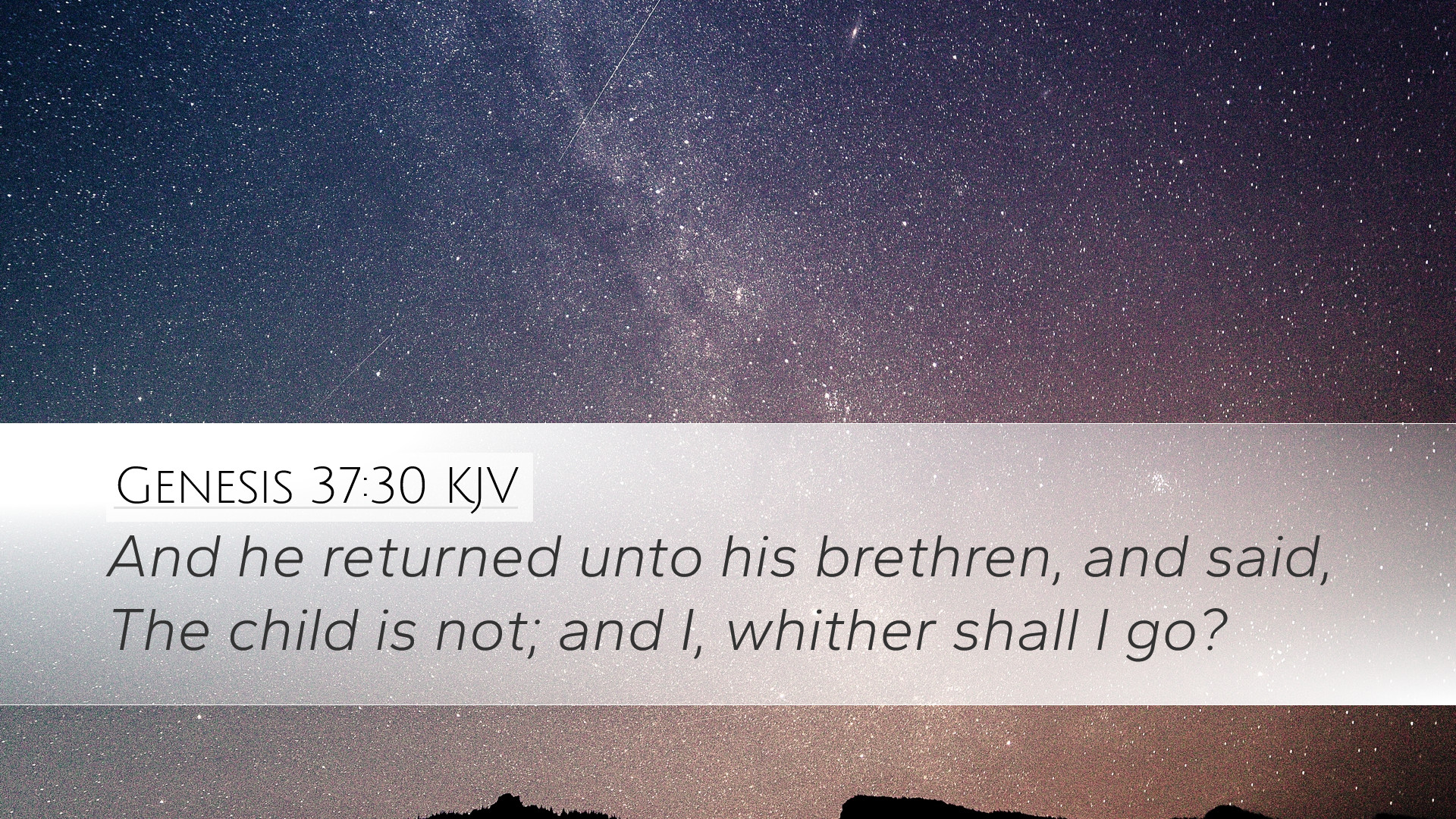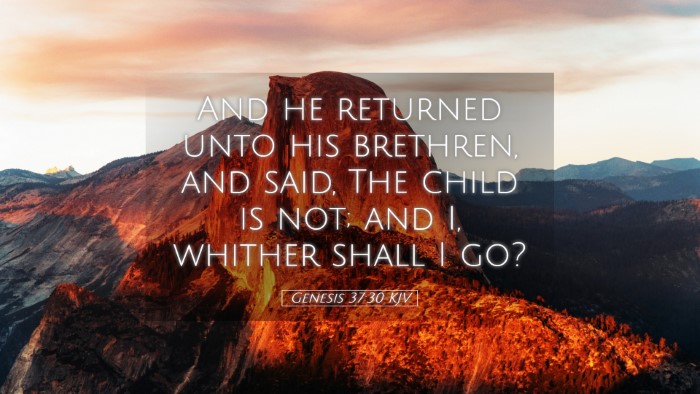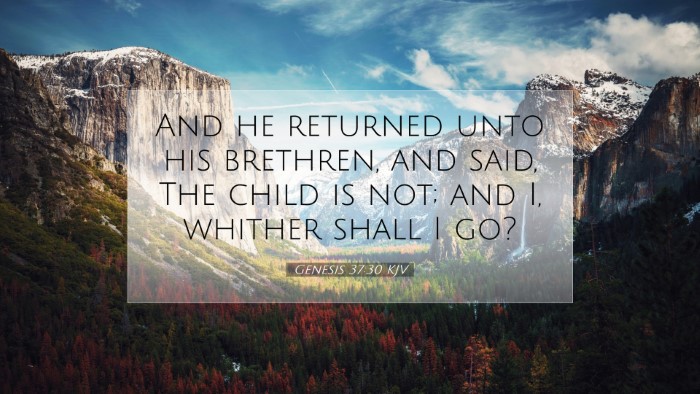Commentary on Genesis 37:30
Genesis 37:30 states:
"And he returned unto his brethren, and said, The child is not; and I, whither shall I go?"
This verse takes us further into the narrative of Joseph's brothers and the tragic events that transpired as a result of their jealousy and deception.
Contextual Analysis
This verse is situated within the larger context of Joseph's story, which is pivotal in the book of Genesis. Joseph, favored by his father Jacob, elicits the envy of his brothers, leading them to conspire against him. The narrative sets the stage for themes of betrayal, redemption, and divine providence.
Matthew Henry's Commentary
Matthew Henry emphasizes the emotional weight of this verse, illustrating the depth of grief and despair experienced by the brothers. When Reuben returns to the pit and finds Joseph gone, he voices his distress: "The child is not." This reflects their immediate realization of the irreversible loss they have caused.
Henry points out that Reuben's question, "and I, whither shall I go?", signifies a moment of reckoning and accountability. It reveals the gravity of their actions and encapsulates the theme of guilt that permeates this narrative.
Albert Barnes' Commentary
Albert Barnes provides insight into the psychological state of Reuben and the other brothers. He rightly notes the shift from a moment of triumph, having initially plotted against Joseph, to a state of mourning. The loss of Joseph symbolizes not just the loss of a brother but also the loss of innocence and the descent into moral confusion resulting from their actions.
Barnes further elucidates that Reuben's statements reflect a sense of hopelessness. His rhetorical question illustrates a profound existential dilemma: how will they face their father Jacob, knowing that they have caused such sorrow? This moment captures a turning point in the narrative—an acknowledgment of the consequences of their sin against Joseph.
Adam Clarke's Commentary
Adam Clarke expands on Reuben's exclamation by pointing out the cultural significance of family and brotherhood within the context of ancient Israel. The phrase, "The child is not", Clarke interprets as a profound expression of loss that resonates deeply within the family unit. This moment is emblematic of the broader biblical theme of family strife and its repercussions.
Clarke also highlights the importance of this verse in understanding God's sovereignty. Although Joseph appears lost, Clarke reminds readers that God's plans are often at work behind the scenes, ultimately leading to a greater purpose that will unfold later in the story.
Theological Implications
This verse serves as a microcosm of the broader themes found throughout the Scriptures: human fallibility, the weight of sin, and the possibility of redemption. The dialogue here is laden with theological implications regarding guilt, accountability, and divine oversight.
- Guilt and Accountability: The brothers are confronted with their actions and the consequences that arise from their decisions.
- Divine Providence: Although evil seems to triumph momentarily, God's providential care is a recurring theme that comes to the forefront as the narrative progresses.
- Restoration: The possibility of restoration and healing is hinted at in Joseph's eventual rise to prominence, reflecting the hope of redemption that pervades the biblical narrative.
Lessons for Pastoral Application
For pastors and church leaders, Genesis 37:30 prompts reflections on the nature of sin in community. This text can be used to instruct congregations on the impact of jealousy and division within families and communities. It highlights the importance of seeking reconciliation and understanding the consequences of actions taken in conflict.
Additionally, pastoral leaders can utilize this passage to teach about the journey to forgiveness and the assurance that God can bring good out of dire situations. It encourages believers to reflect on their own relationships and the gravity of their decisions, urging them toward restoration and healing.
Conclusion
Genesis 37:30 opens a window into the emotional turmoil and consequences faced by Joseph's brothers. Their realization of loss reflects a broader existential crisis faced by humanity in light of sin. Through the insights of respected commentators like Henry, Barnes, and Clarke, we gain a profound understanding of the implications of this moment within the narrative, as well as its lasting relevancy in theological discourse.


